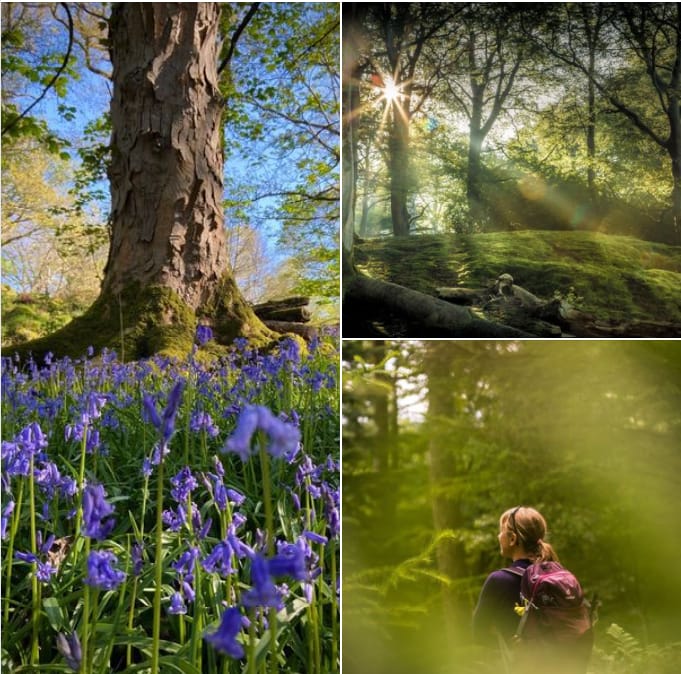Supporting Access to Green Spaces to encourage a healthier lifestyle and improved wellbeing for all
Mental Health Awareness Week is fast approaching, and the National Trust and Lakeland Wellbeing are working together to invite people to reconnect with the outdoors and discover the benefits of nature. Today’s busy lives can have a significant impact on our mental and physical wellbeing with the last few years having been particularly difficult for many people. Studies suggest that improving a person’s connection with nature leads to significant increases in their wellbeing.
In a series of events and activities, visitors will be invited to enjoy lakeside walks and woodland hikes, as well as relax with Forest Bathing sessions and guided mindfulness walks in the spring and autumn. The first of these sessions, a mindful bluebell walk in Holme Wood, Loweswater, will take place on Thursday 12 May.
Combining mindfulness practices while enjoying the outdoors can help people get the most out of their visits and leave feeling refreshed. Jen Grange, director and creator of Lakeland Wellbeing, is based in the heart of the Lake District and offers nature-based therapies, coaching and workshops which focus on reconnecting with the self through a connection to nature.
Jen Grange says: “Getting outside is so important for both our mental and physical health. Time in nature allows our worries to fall away and our bodies and minds begin to heal. The beautiful Lake District landscape offers a wonderful opportunity to relax, unwind & connect with the natural environment, allowing you time to switch off from the pressures of life and simply ‘be’. When sitting under the canopy of a beautiful tree or listening to the waves gently lap against the lakeshore, it is hard not to be mindful and appreciative of all that nature has to offer.”
Jessie Binns, Senior Programming and Partnerships Officer, National Trust says: “I’m lucky that I can walk into the woods on my lunchbreak from work. If I’ve had a stressful day and things are getting me down, being among the trees always helps. Listening to the wind in the leaves, smelling the scent of fresh earth and pine sap, feeling the squelch of the soft mud beneath your boots, seeing a bird swooping between the branches, all of this helps me feel more connected to the earth and reminds me of what’s really important.” Forest bathing, forest therapy or ‘shinrin-yoku’ as it is called in Japan, has been practiced by indigenous populations worldwide for centuries but recent scientific studies have been confirming its validity which has spurned a rising interest for this simple health practice.
Many such studies have shown that two hours of mindful exploration in a forest could reduce blood pressure, lower cortisol (stress hormone) levels and improve concentration and memory. It has also been found that trees release into the air a wide range of chemicals such as phytoncides, which have anti-microbial and anti-viral effects on the human body, boosting the immune system when inhaled or absorbed through the skin. Because of these benefits, the Japanese government introduced ‘shinrin-yoku’ as a national health programme.
Access to green spaces is vitally important and the National Trust works hard in caring for much of the landscape in the Lake District and beyond. As well as rural lake and hillside walks, those in built up areas can enjoy green spaces and coastal walks at Whitehaven Coast and Wordsworth House and Garden. The National Trust continues its work to make the Lake District more accessible to all by improving paths, toilets and changing facilities. To make a booking and to see a full list of Lakeland Wellbeing events please visit: https://lakelandwellbeing.co.uk/wellbeing-events-and-retreats/.

